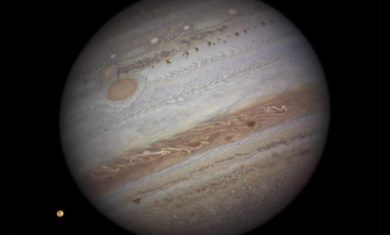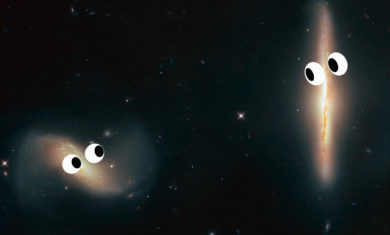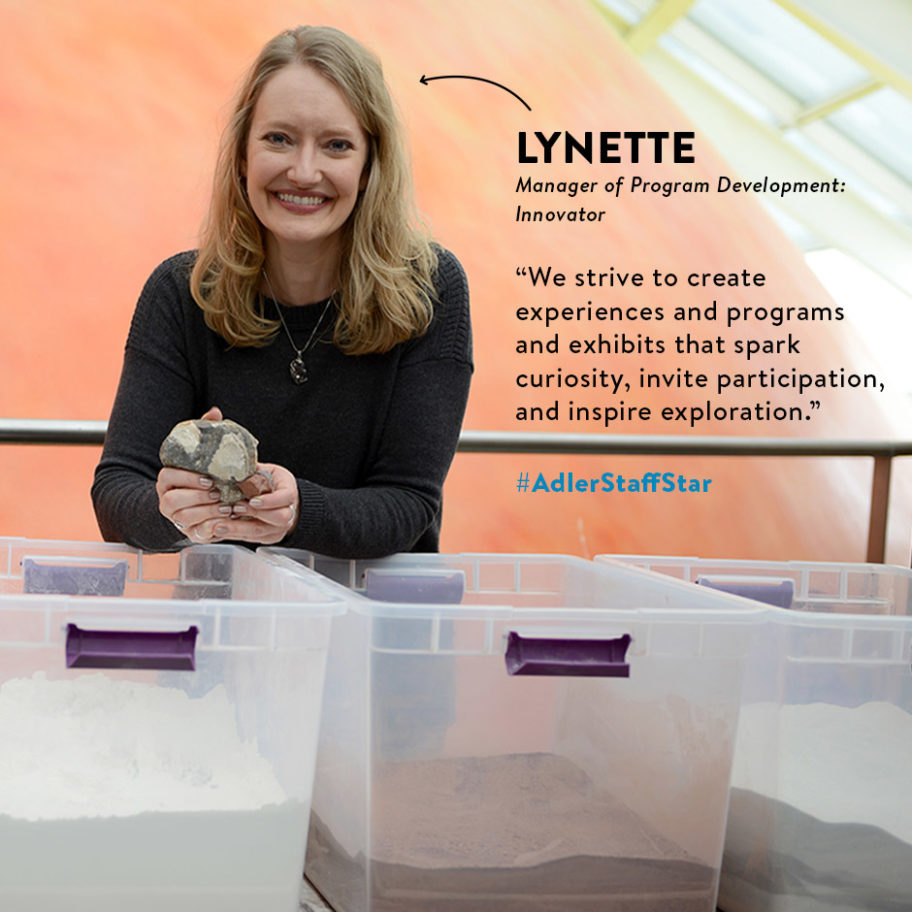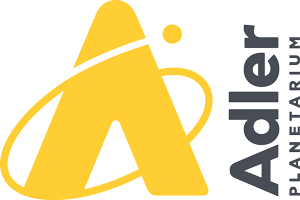Imagining the Moon
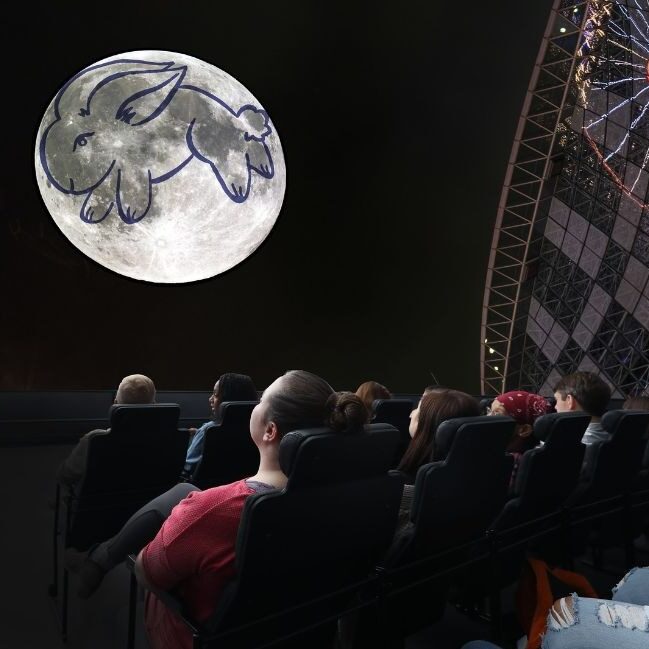
You probably know that it takes many minds and lots of teamwork to achieve scientific breakthroughs like human spaceflight. But did you know the same principle applies to complex terrestrial feats like producing a planetarium show?
The Adler’s newest show, Imagine the Moon, was a massive team effort. The Adler’s Guest Experience and Theaters teams worked together to develop an engaging story, staff members within our Astronomy and Collections teams selected exciting themes to explore, and our Visualization team brought everything to life on the dome. Executing this collective vision was only possible at a place like the Adler, where experts in diverse fields work together every day to connect people to our Universe.
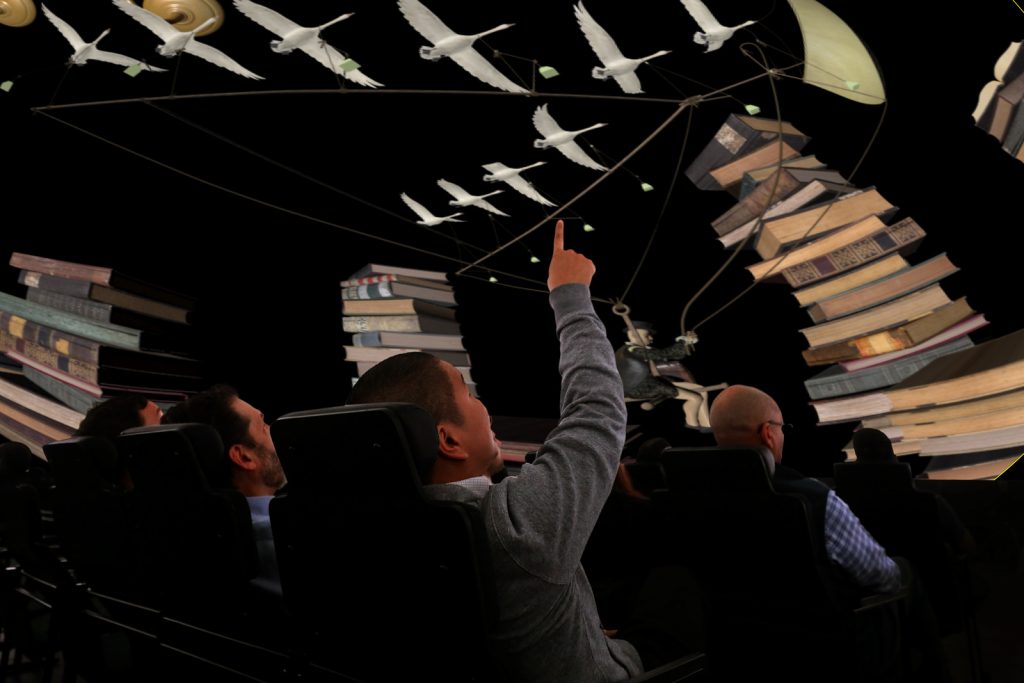
Imagine the Moon explores how the Moon has inspired human creativity, learning, and exploration ever since people looked to the sky. People all over the world have imagined the Moon in different ways: As a faraway apparition, a glowing disk in the sky, a destination in space, and a world that shares its origin with Earth. As we celebrate five decades since the Apollo missions brought astronauts to the Moon, Imagine the Moon reveals how the Moon has been a source of wonder for all of human history.
Four hundred years ago, when Galileo pointed telescopes at the Moon, he saw mountains and craters instead of a perfectly smooth surface. The Moon became a world that people imagined they could visit. For Imagine the Moon, the Adler’s Collections team identified books in our collection containing new ideas for traveling to the Moon. One 18th-century author imagined a vessel like a small boat that included a telescope for making observations, flapping wings for gaining altitude, and a cannon for keeping possible lunar residents at bay. Thanks to a new animation developed by Adler’s visualization team, Imagine the Moon shows what this fanciful vision might look like in real life.
Visions of going to the Moon led to real journeys of discovery. Humans traveled to another world during the Apollo missions. The global population came together to witness these events in a way that had never happened before. Imagine the Moon shows perhaps the most surprising perspectives shared by these intrepid explorers (and given new life by our visualization team): Views of planet Earth as a small island in space.
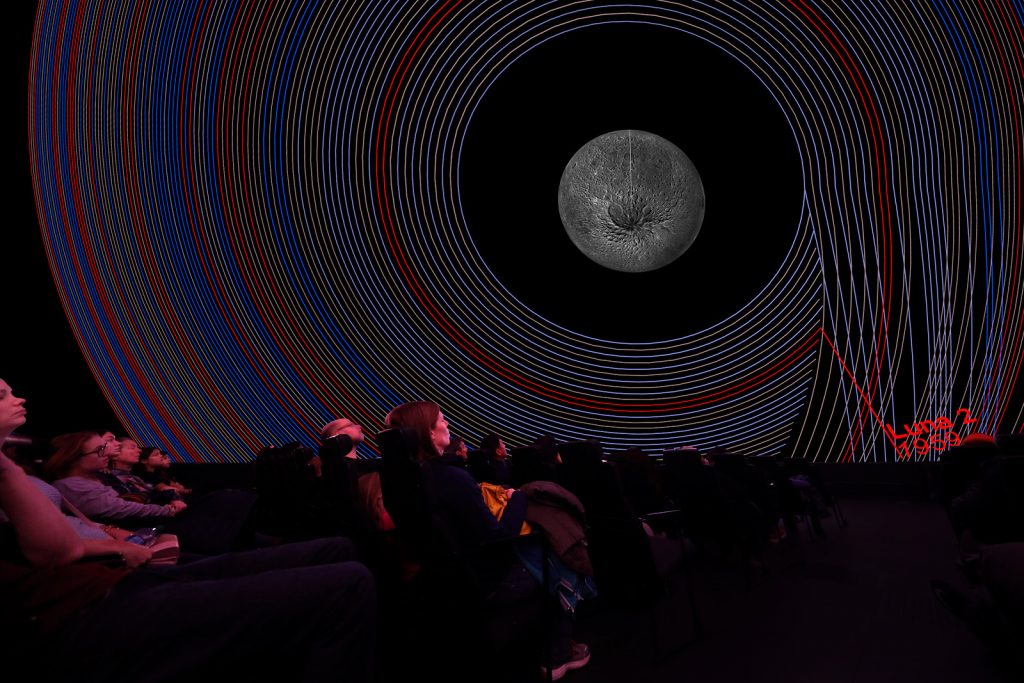
Imagination is an essential part of expanding our knowledge and understanding. Moon rocks returned by the Apollo astronauts provided clues that the Moon likely originated billions of years ago from a massive collision between the early Earth and another body. The Moon continues today to spark the imagination of scientists. Using scientific imagination and cutting edge research, Adler astronomers worked with colleagues to visualize a new theory that expands on ideas about how the Moon formed. This new theory suggests an early collision with so much energy that it vaporized much of the two objects and forming both Earth and Moon. Imagine the Moon presents this theory in a breathtaking visualization for the first time in a planetarium show.
People all over the world see the same Moon in the sky, and the Moon has many more mysteries yet to be solved. By bringing together diverse perspectives to produce Imagine the Moon, the Adler invites everyone to feel a connection to the sky and imagine the Moon for themselves.




